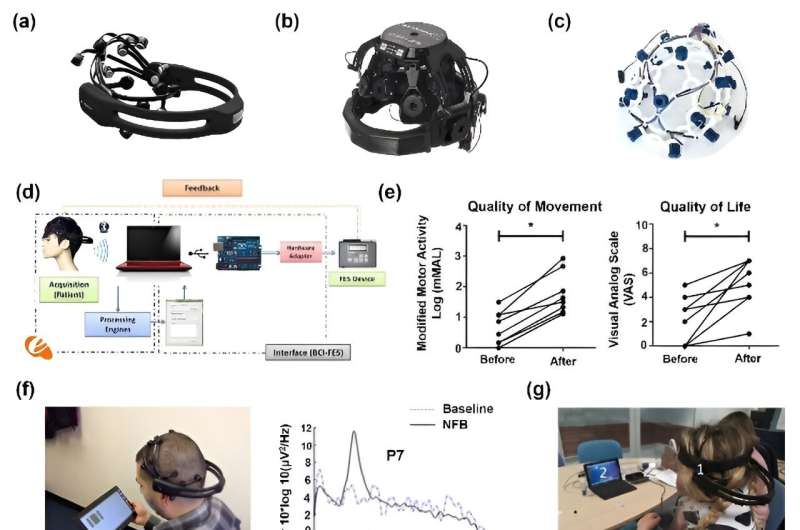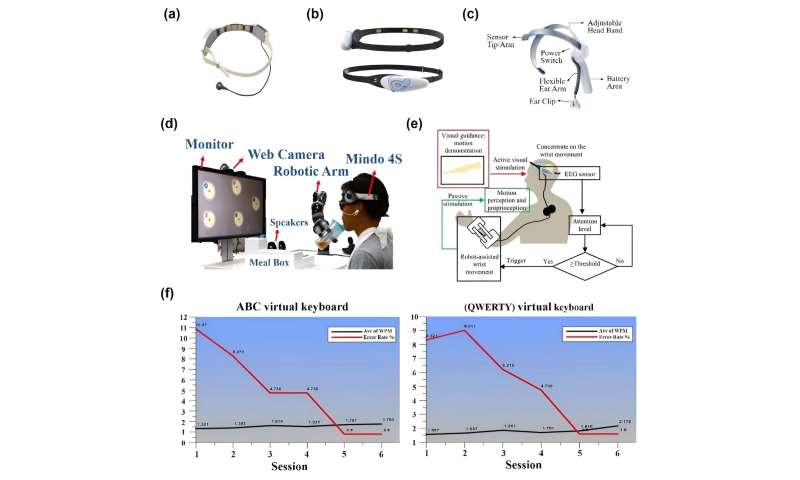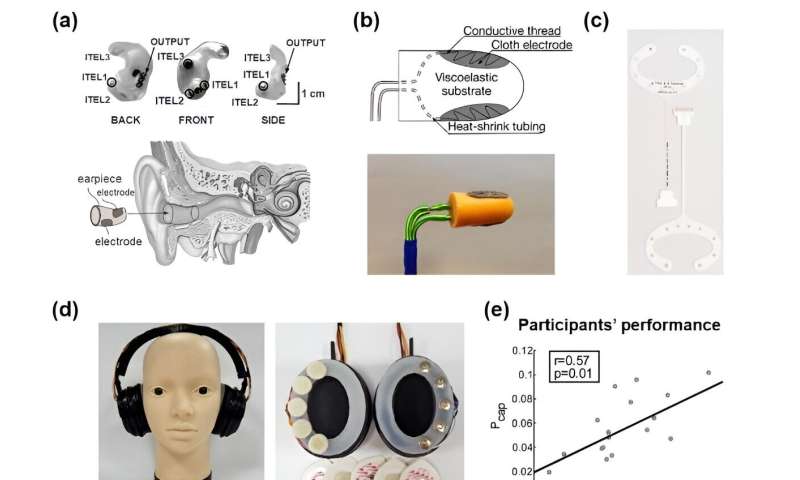
A review in Health Data Science highlights significant advancements in wearable electroencephalogram (EEG) technologies for non-invasive brain-computer interfaces (BCIs). This review is particularly valuable for researchers and clinicians new to BCI applications, offering insights into mainstream wearable non-invasive BCIs and the latest research reports.
Professor Zhihong Li from Peking University underscores the need for wearable BCIs, noting their potential to facilitate intelligent medical care beyond laboratory and clinical settings. "Wearable BCI systems are essential in the burgeoning field of intelligent medical care," says Li.
The review emphasizes the practicality of BCIs in continuous monitoring of intermittent neurological diseases like epilepsy and migraine, as well as in controlling assistive devices in real-life scenarios. "For effective daily use, the wearability of BCIs is crucial," explains Dr. Junshi Li from Peking University. Unlike other non-invasive BCIs, EEG can be acquired through scalp-based electrodes, making it more suitable for everyday wear.
-

(a) Brain Research Center of National Chiao Tung University developed Mindo 4S EEG device. (b) Shenzhen Macrotellect Company designed BrainLink Lite. (c) NeuroSky Company developed MindWave Mobile. (d) Chiu et al. from University of Technology built an SSVEP-based BCI eating assistive system. (e) Li et al. from Xi'an Jiaotong University introduced a BCI system for wrist rehabilitation. (f) Salih et al. designed a BCI-based visual keyboard using the MindWave Mobile headset. With the QWERTY virtual keyboard (left) and ABC virtual keyboard (right), an average text entry speed of about 1.55-1.8 words per minute and an error rate of 5-5.25% were obtained. Credit: (a) 2017 IEEE. Reprinted, with permission, from Lin et al., Forehead EEG in support of future feasible personal health care solutions: sleep management, headache prevention, and depression treatment. IEEE Access. 2017;5:10612-10621. DOI: 10.1109/ACCESS.2017.2675884 (b) https://ift.tt/Rtbg469 (c) 2020 IEEE. Reprinted, with permission, from Tiwari et al., Sensitive brain-computer interface to help maneuver a miniature wheelchair using electroencephalography. 2020 IEEE International Students' Conference on Electrical, Electronics and Computer Science (SCEECS). 2020:1-6. DOI: 10.1109/SCEECS48394.2020.73 (d) 2017 IEEE. Reprinted, with permission, from Chiu et al., A wireless steady state visually evoked potential-based BCI eating assistive system. 2017 International Joint Conference on Neural Networks (IJCNN). 2017:3003-3007. DOI: 10.1109/IJCNN.2017.7966228 (e) Used with permission of IEEE, from Attention-controlled assistive wrist rehabilitation using a low-cost EEG sensor, Li et al., 19(15), 2019; permission conveyed through Copyright Clearance Center, Inc (f) 2020 UAD. Reprinted, with permission, from Salih et al. -

(a-b) Scientists from Imperial College London designed two kinds of in-the-ear electrodes. (c) Debener and Bleichner et al. from the University of Oldenburg designed a flexible c-shape ear-EEG acquisition sensor (cEEGrid) (d) Kaongoen et al. from Korea Advanced Institute of Science and Technology designed an online BCI system based on the behind the ear electrodes. (e) Mirkovic et al. from University of Oldenburg developed an ear-EEG BCI for the attended speaker identifying, and the positive correlation of the performance scores was evident. (f) Nogueira et al. from Hannover Medical School evaluated the BCI system in attention selection with cEEGrid, and only half of both the cochlear implant (CI, right) and normal-hearing (NH, left) users obtained decoding accuracies above the chance level. Credit: (a) Used with permission of IEEE, from An in-the-ear platform for recording electroencephalogram, Looney et al., 2011; permission conveyed through Copyright Clearance Center, Inc. (b) Used with permission of IEEE, from In-ear EEG from viscoelastic generic earpieces: robust and unobtrusive 24/7 monitoring, Looney et al., 2015; permission conveyed through Copyright Clearance Center, Inc. (c) 2021 Taylor & Francis Ltd. Reprinted, with permission, from Knierim et al. (d) 2022 Elsevier Ireland Ltd. Reprinted, with permission, from Kaongoen et al. (e) 2016 Frontiers. Reprinted, with permission, from Mirkovic et al. (f) 2019 Frontiers. Reprinted, with permission, from Nogueira et al.
Categorized into scalp-, forehead-, and ear-EEG based on recording locations, the review addresses the unique advantages and challenges of each. Scalp-EEG, though offering richer brain information, faces challenges in wearability and hair interference. On the other hand, forehead- and ear-EEG are more user-friendly, with ear-EEG poised to become a mainstream technology in the future.
"Improvements in ear-EEG signal mapping and data processing algorithms will likely make ear-EEG-based wearable BCIs a leading technology," says Jiayan Zhang, a doctoral candidate at Peking University.
Despite the advancements, wearable BCI technology still requires further development, including addressing individual differences in EEG signals and enhancing system robustness against user and environmental interferences. Zhang envisions a future with simpler, more functional, and automated EEG-based wearable BCI devices, significantly advancing medical technology in areas like disease prediction, diagnosis, treatment, and auxiliary equipment control.
More information: Jiayan Zhang et al, Recent Progress in Wearable Brain–Computer Interface (BCI) Devices Based on Electroencephalogram (EEG) for Medical Applications: A Review, Health Data Science (2023). DOI: 10.34133/hds.0096
Provided by Health Data Science
Citation: Review highlights advances in wearable brain-computer interfaces (2024, January 8) retrieved 8 January 2024 from https://ift.tt/n3EluWp
This document is subject to copyright. Apart from any fair dealing for the purpose of private study or research, no part may be reproduced without the written permission. The content is provided for information purposes only.
"interface" - Google News
January 09, 2024 at 03:27AM
https://ift.tt/EoMqFAw
Review highlights advances in wearable brain-computer interfaces - Medical Xpress
"interface" - Google News
https://ift.tt/fNu6WAX
https://ift.tt/jOAd4IV
Bagikan Berita Ini














0 Response to "Review highlights advances in wearable brain-computer interfaces - Medical Xpress"
Post a Comment